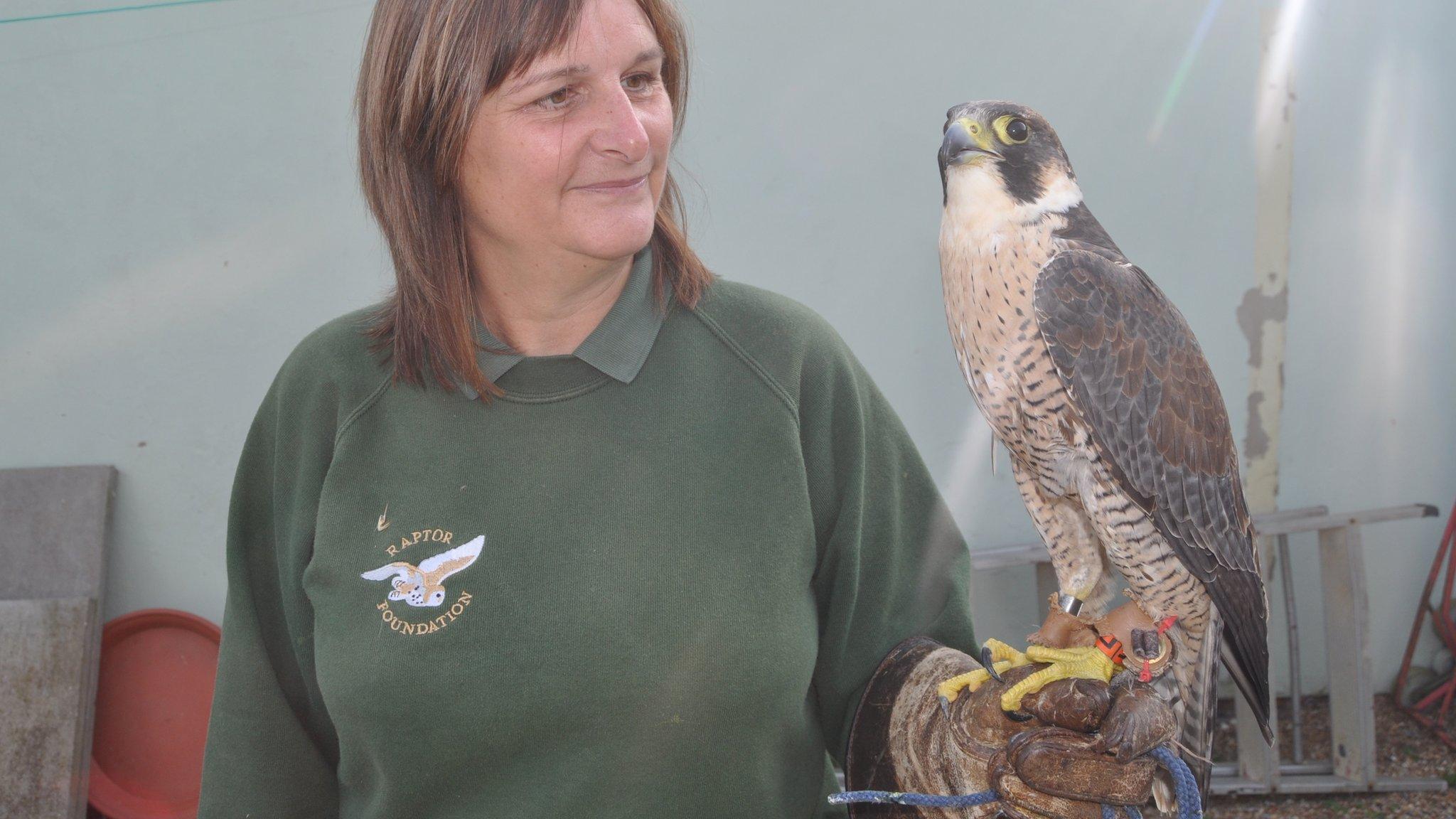First peregrine chick hatches at St Albans Cathedral
- Published
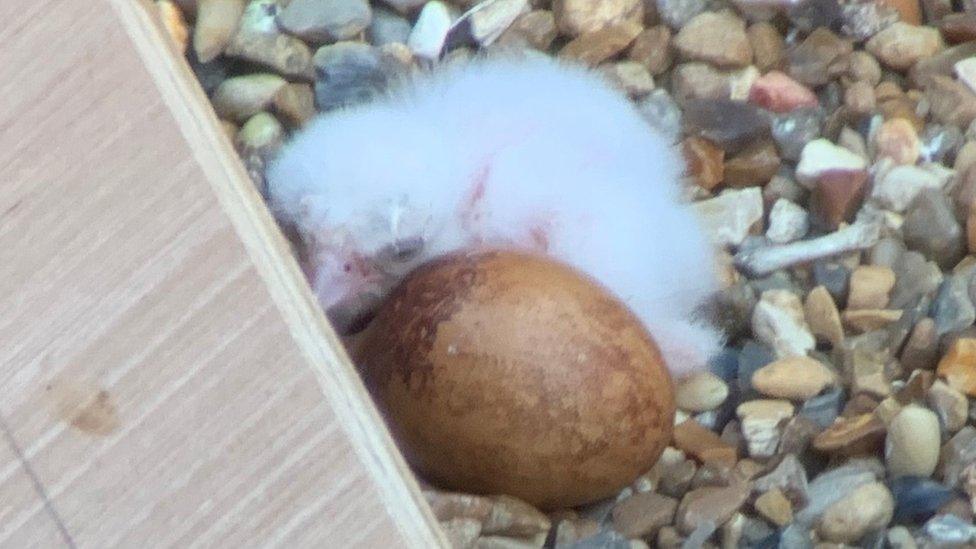
The peregrine chick hatched from its egg on St Alban Cathedral over the period 16-17 May
A peregrine chick has successfully hatched from the first eggs laid on a cathedral's new nesting tray.
A pair of the falcons had set up home on the tray at St Albans Cathedral, which was installed as part of the city-wide project.
Herts & Middlesex Wildlife Trust said the chick was the first peregrine recorded as being born in the city.
Heidi Carruthers from Wilder St Albans said it was "thrilling" that a chick had hatched safely.
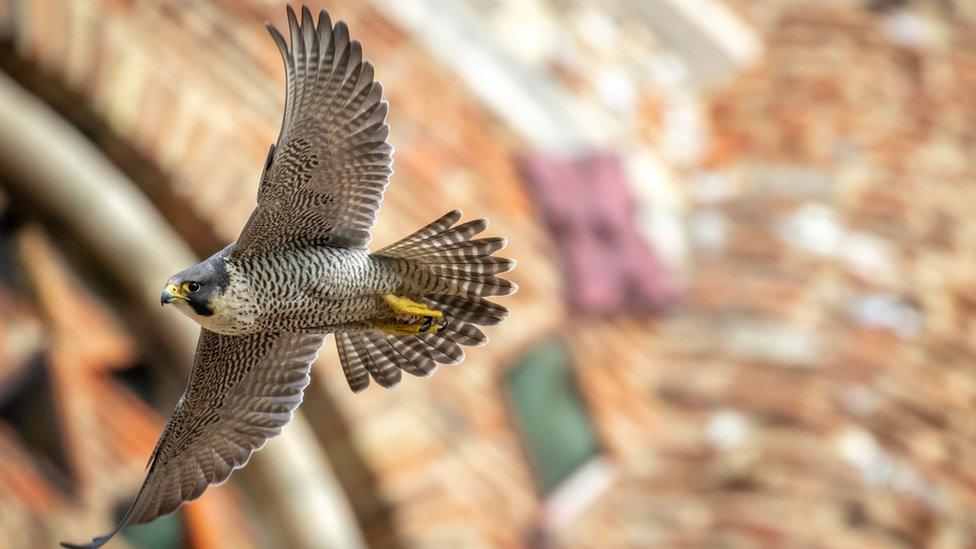
The St Albans peregrine falcons are one of five pairs to nest in Hertfordshire
The Wilder St Albans project is a collaboration between the wildlife trust and St Albans City and District Council, which linked up with local ornithologist and licensed bird-ringer, Barry Trevis, to install the tray.
Earlier this month, it was announced that a pair of peregrines had bred on the cathedral for the first time and two eggs had been laid.
The tray is fixed high up on the cathedral and out of sight behind a parapet, but birdwatchers on the ground can see the peregrines coming and going.
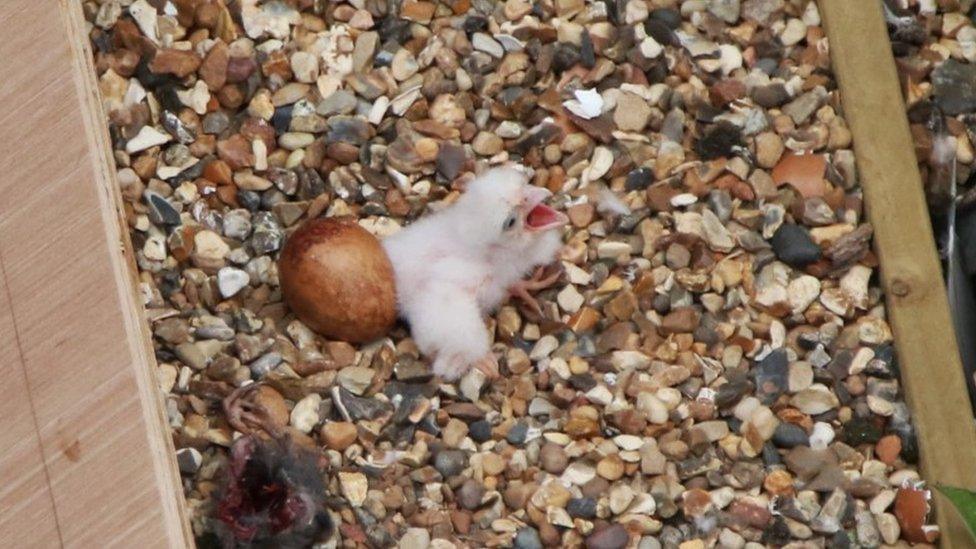
The peregrine chick hatched from its egg on St Albans Cathedral over the period 16-17 May
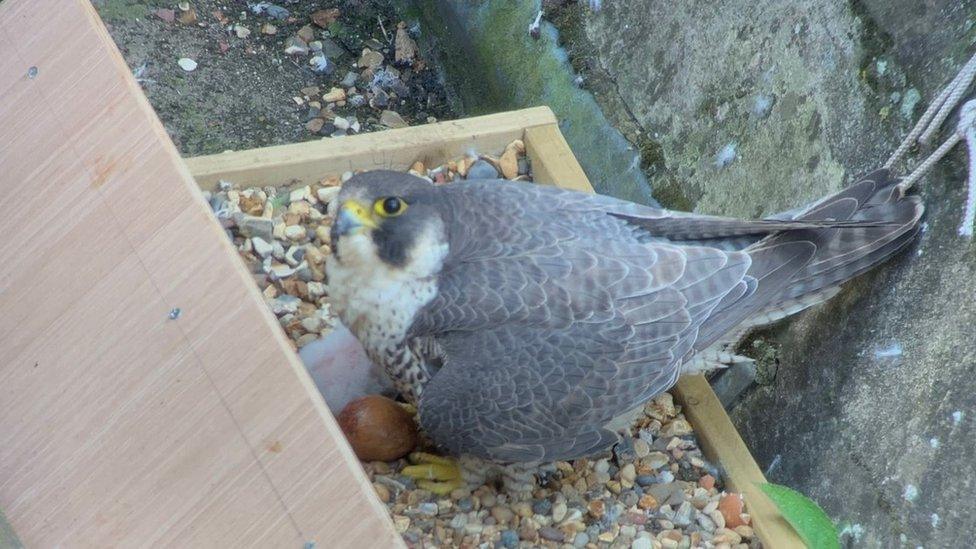
Female peregrine Boudica tends to her chick
Project officer, Ms Carruthers, said: "We are all really excited to follow the bird's journey on to fledging.
"Peregrines are such an iconic species so it's fitting to have them making a home on the most iconic building in St Albans.
"There has been a lot of interest in the birds so we're hoping that we can use this as an opportunity to teach people about these birds and the other wonderful wildlife all around us in Hertfordshire."
Mr Trevis said the first egg hatched over the period 16-17 May, it they would normally expect any second egg to "not hatch so long after the first" and as it had not done so it was "probably infertile".
"With an inexperienced, new breeding pair then that is not particularly unusual," he said.
"At least we have one chick and considering the sheltered and secure nest position, with the benefits of cover that the tray provides plus plenty of food around, then it should survive to fledging around the last week of June."
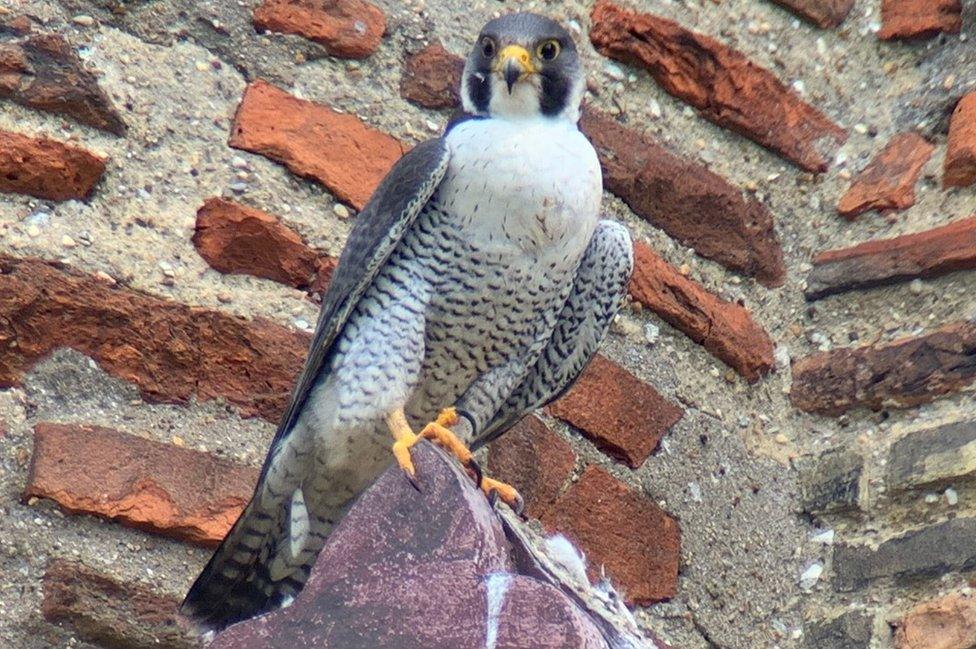
The male peregrine falcon at St Albans Cathedral has been named Alban
St Albans Cathedral ran a public vote to name the adult birds resulting in Boudica and Alban winning the poll.
It has now asked for help to name the new arrival, external.
The Reverend Dr Kevin Walton, cathedral canon chancellor, said: "We are very pleased to welcome our new peregrine to its temporary home in the cathedral tower, and as it prepares to take to the skies, we wish upon it God's blessing. Congratulations also to Alban and Boudica."
The wildlife trust hoped that as peregrines normally mate for life and can remain loyal to their nest site, the birds would return to the cathedral annually.
The birds of prey are one of five pairs known to be breeding in Hertfordshire, with others spotted in Watford, Hemel Hempstead, Welwyn Garden City and Wymondley.

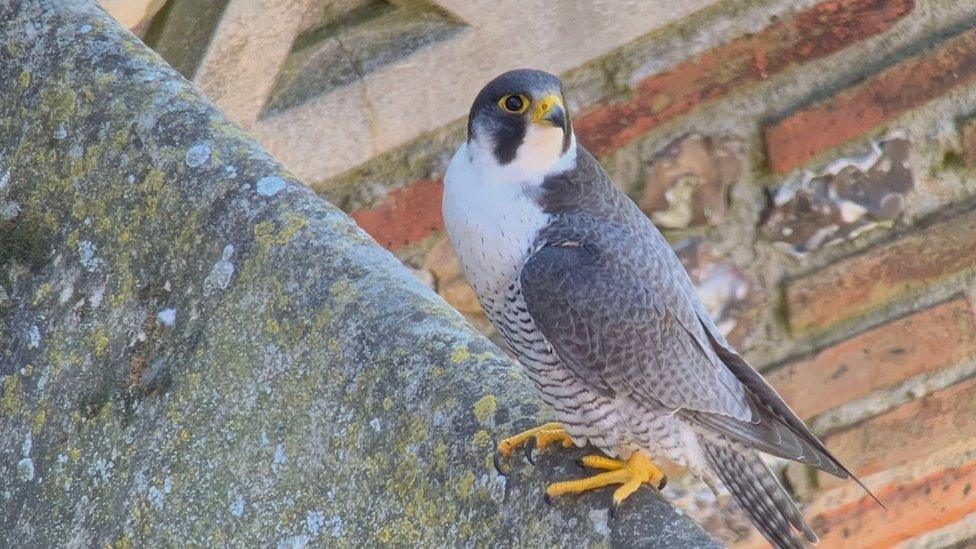
It is hoped the first sightings of the young peregrine will be in the last week of June
Peregrine falcon
A powerful bird of prey with blue/grey plumage, a white face and a contrasting black moustache
Top flying speed of 180mph (290km/h) when diving - making it the planet's fastest animal
About 1,500 breeding pairs in UK
Hen lays 3-4 eggs a year
UK birds remain resident all year round, with others visiting from northern Europe
Numbers of the species fell through the first-half of the 20th Century to critical levels in the 1960s, but are now protected by law as a Schedule 1 listed species of The Wildlife and Countryside Act and it is an offence to disturb the birds in any way

Find BBC News: East of England on Facebook, external, Instagram, external and Twitter, external. If you have a story suggestion email eastofenglandnews@bbc.co.uk, external
Related topics
- Published3 May 2022
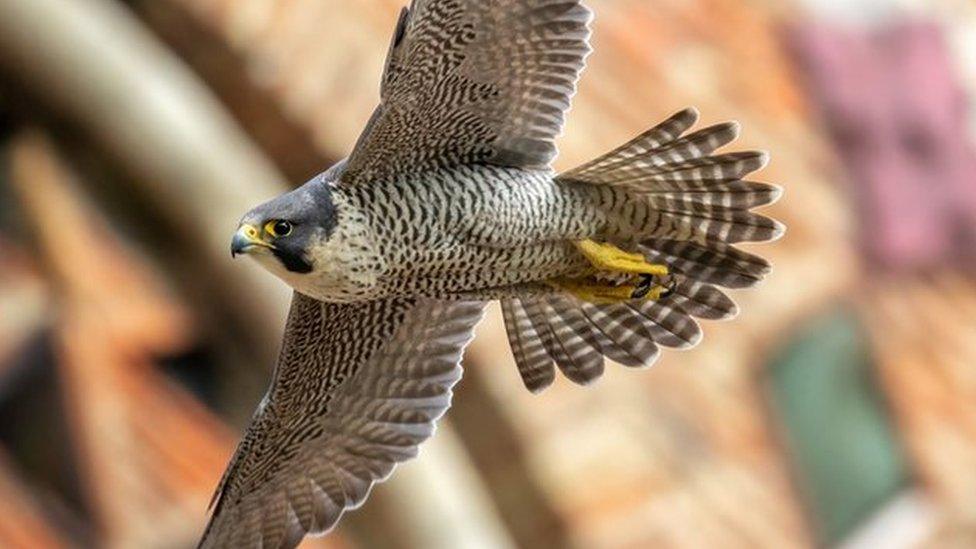
- Published5 April 2022
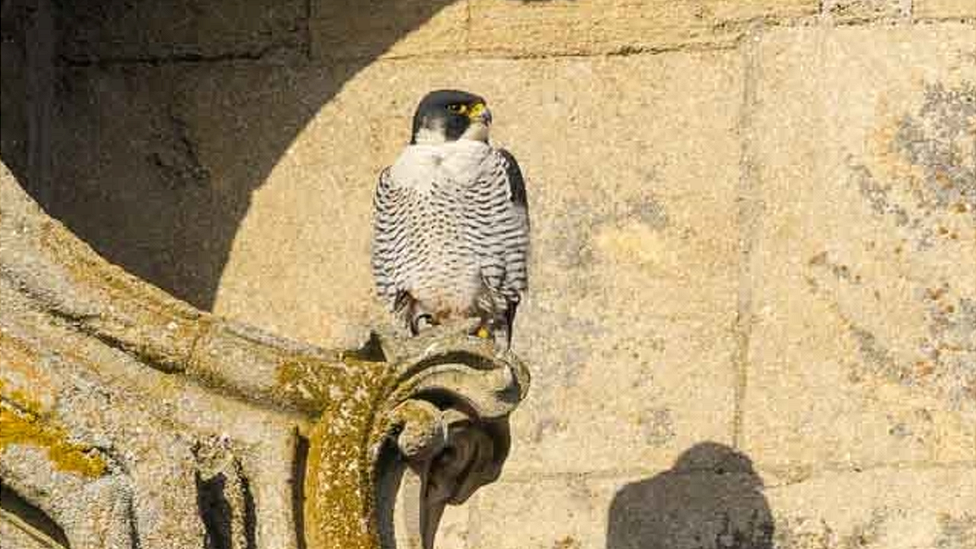
- Published27 November 2021
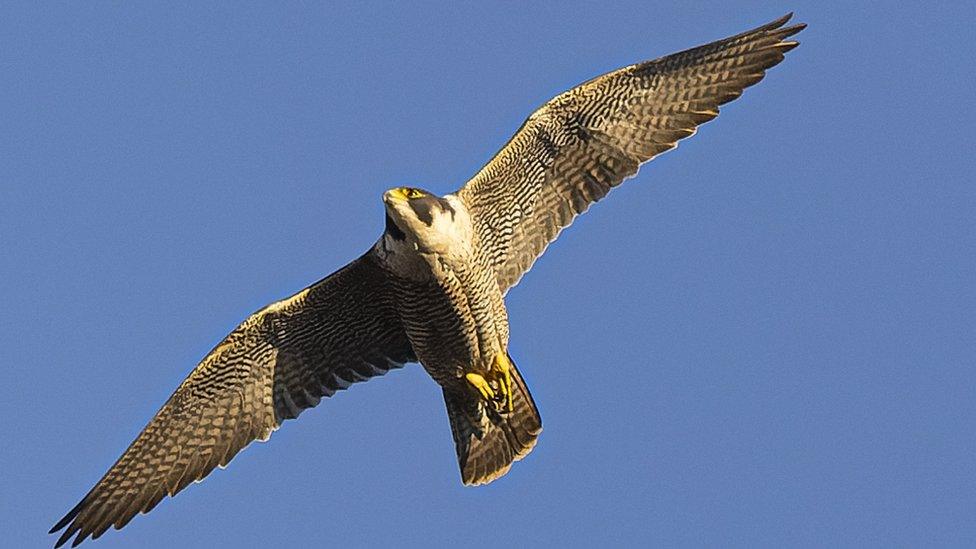
- Published4 May 2021
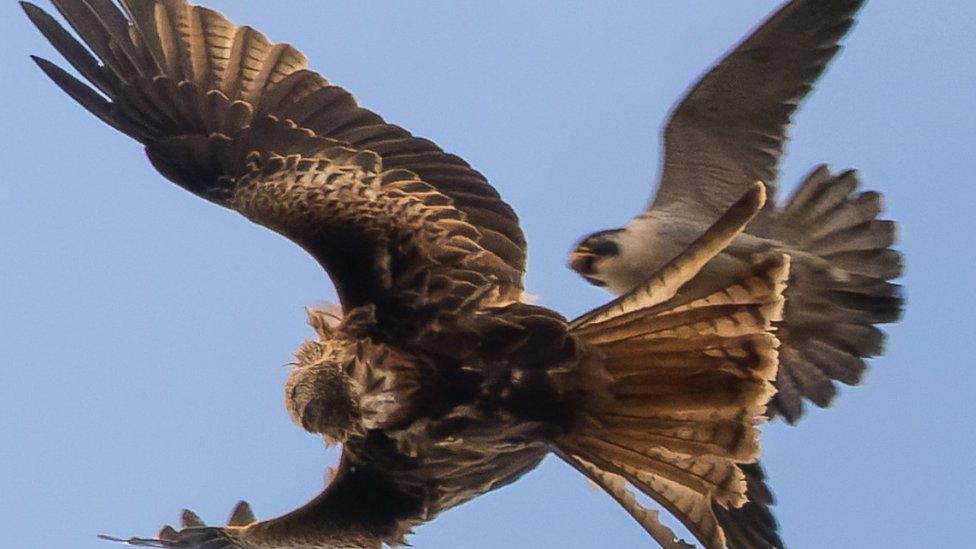
- Published20 January 2019

- Published1 November 2015
